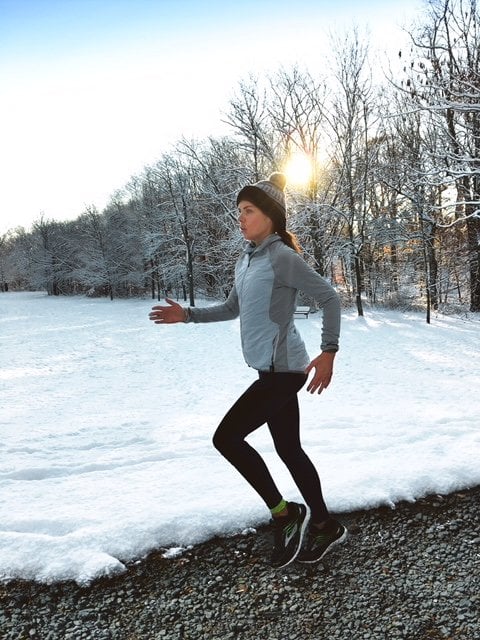
One of the most common questions people ask is how I’ve ran over 40 half marathons. I wasn’t always a runner, in fact, I hated it until college.
I grew up as a competitive swimmer, and until 2010, thinking about any running made me cringe. Now I’ve completed over 50 5K’s, 40 half marathons, and even two marathons.
Many people who are just starting running, might have the goal to run 1 or 2 miles and running a half marathon seems overwhelming.
When I first started running in 2010, I couldn’t run a mile without stopping. I was a swimmer and competed for my collegiate swim team, but I lacked any running endurance.
How did I go from not running to running nearly 50 half marathons?
Despite ability level, we all have one thing in common: Running (in its simplest form). Our goals might be different but the process to get there is similar.
Some people might have a goal to finish their first 5k, to Boston qualify, or to run their fastest half marathon ever.
Lesson #1: Build your base slowly
It’s easy to get caught up in what everyone else is doing, but it’s essential to build your base very slowly. If you go from never running to running 30 miles a week, you’ll improve quickly, but you’ll also get injured very quickly. Your body won’t be able to withstand that stress!
Most training plans recommend building mileage by about 10% each week and taking a rest week every month.
If you are starting from nothing (like I was), consider a walking and running plan. Walking is still time on your feet. You might feel silly taking a rest week or walking, but your body will thank you in the long run.
Lesson #2: Easy runs are critical
As a new runner, most people believe “faster is better.” I know I did! When I constantly tried to run every run faster than the previous day, I ended up with a tibial stress fracture. You don’t (and shouldn’t) try and run faster and longer each day.
The easy runs and rest days are just as important as the “hard days.”
Lesson #3: A few days off saves a few months off
My college coach told us, “a few days off will save a few months off.” Most stress-related injuries take time to develop and usually have warning signs. Maybe your body has been achier or felt physically off.
Listen to your body. You won’t lose fitness by taking a few days off when you feel aches and pains, but you will lose fitness when you’re out for a few months from an injury.
A month ago, I felt burned out and stale. Running didn’t feel right and felt like a chore. I took a few days off, and it allowed me to feel fresher and go on to win the April Fools Half Marathon in Atlantic City. Don’t be afraid to take a few days off!
Lesson #4: Make realistic goals
If you have never run more than a mile, don’t make your goal to race a half marathon next month. Make sure your goals are realistic and relevant to you.
Similarly, make sure it’s a goal you feel passionate about. It doesn’t matter if your best friend’s goal is to break 2 hours in a half marathon, you don’t have to make that yours too. If you don’t like that distance why make that your goal?
Similarly, make small goals to reach larger ones:
If your goal is to finish your first half marathon, make smaller goals to achieve that. Finish your first 5k, even 10k or a 10 miler along the way. Small goals give us the confidence to reach our larger goals!
Lesson #5: Consistency is key
Your endurance and fitness are not built from a single day or workout. Heck, it’s not even made from a week or two. It’s built from months upon months of training. Use races as stepping stones to reach a bigger goal.
The two fall cross country seasons I ran for my college were never great. However, the consistent training in the fall led me to run great spring races.
Lesson #6: There is no secret
No magic potion will make you great at anything. There is no secret to make you a great runner! Elite runners have spent years of consistent training to get where they are. Liden, who recently won the Boston marathon, ran the race multiple times before winning.
“There is no secret” isn’t what anyone wants to hear right? Consistency is critical and focusing on a large goal is so beneficial.
How have you gotten where you are with running?
Hollie Sick is an avid runner who’s completed more than 40 half marathons. Read her blog, or follow her on Facebook.




